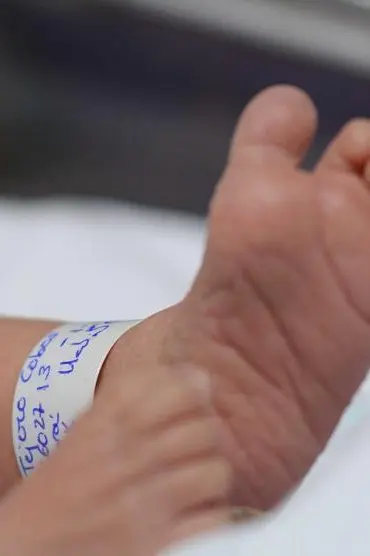In the case of Peru, this is regulated by the government, which is responsible for approving or rejecting the applications of the applicants. This process can take several years, time that not everyone is willing to wait, so they decide to take other routes, immersing themselves in a human trafficking network, under the modality of trafficking of newborns.
Knowing the existence of the General Directorate of Adoptions of the Ministry of Women and Vulnerable Populations (MIMP), those interested seek to shorten the time it may take to be considered qualified, which implies the presentation of documents, interviews and psychological, economic and similar evaluations.
Free market for human trafficking
“This is the simplest thing in the world,” is how lawyer Walter Guevara López defines his illegal work. He charged seven thousand dollars for his fees, which covered finding a woman who was about to give birth, in addition to advising his clients on the steps they should follow to avoid raising suspicions, according to information provided by Panorama. Added to that amount was the cost of the cesarean section, which was paid for by the adoptive parents.
How did he act?
Thanks to hidden cameras, it was evident that he contacted married couples or couples with limited resources, who could not give their children a good quality of life. Among his offers was that of guaranteeing the delivery of the babies hours after their mother had given birth.
“Ultrasound of the baby boy who will be born in two weeks. Waiting to be adopted since the day of his birth. Contact the email address on my website.” The man of law, without any shame, confesses that he paid up to 10 thousand soles to a mother to give him her son.

He worked in a supposed law firm, his front inside a gallery. To avoid putting himself at risk, his cover letter was as a “collaborator” to manage adoption procedures, a process that is exclusive to government entities. His express consultations cost 100 soles, minutes in which he took out documents, ultrasounds and medical studies to ensure that there would be no errors.
Identity theft
For the operation to be successful, Guevara indicated that the surrogate mother had to enter the clinic with the DNI of the adoptive person, and within the facilities, the exchange was carried out. This unscrupulous person recruited young first-time mothers to give them considerable sums of money. He even made the couples he met participate in a legal consultation so that they would not suspect illegal acts.
Country situation
Minister Claudia Dávila Moscoso reveals that in Peru there are 6 thousand missing women per year and more than 4 thousand are girls. “The figures are terrifying. When we talk about the issue of human trafficking, the majority of the victims are women. When we talk about teenage pregnancy, they are our girls. We cannot continue to pretend that the table is equal,” said the MIMP authority.

 IHRO NEWS
IHRO NEWS

